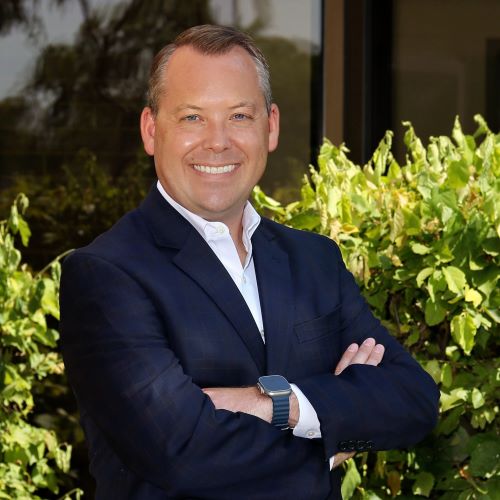Empowering Educational Leadership: Insights from the Harvard Institute for Superintendents and District Leaders
May 06, 2024
Educational leaders from diverse backgrounds recently converged at the Harvard Institute for Superintendents and District Leaders, embarking on a journey of discovery and transformation. Over two dynamic days of discussions, participants explored strategies to tackle pressing challenges and foster positive change within their educational communities.
Transformative Leadership and Sup(t)erpowers
The inaugural day of the institute delved deep into the essence of transformational leadership and the superpowers essential for navigating today's complex educational landscape. We, as participants, grappled with the sobering reality of hiring difficulties, with a staggering 83 percent of the participants reporting challenges in this area. As discussions unfolded, a pivotal distinction emerged between technical challenges with clear-cut solutions and adaptive challenges necessitating broader stakeholder involvement in problem-solving processes.
We engaged in several activities to underscore the importance of communication, but the Human Tower exercise resonated with me, beautifully illustrating the essential support of collaboration, the strategic agility of critical thinking, and the empathetic bond that holds it all together.
As superintendents, we frequently preach and practice collaboration, but this activity encouraged us to introspect and identify the factors that unleash our inner sup(t)erpowers. It also served as a welcome reminder of the intrinsic motivation and unwavering commitment that drives us to build resilient teams capable of tackling multifaceted challenges.
The conversation also delved into the instructional core, highlighting the critical nexus between instructional tasks and student outcomes. Strategies for fostering innovation, embracing constructive disruption, and harnessing emerging technologies like AI were highlighted as imperative for effecting meaningful change in educational practice.
Navigating Difficult Conversations and Building Resilience
The second day of the institute pivoted toward exploring strategies for navigating difficult conversations, fostering robust family engagement, refining communication strategies, and cultivating mental health resilience among educational leaders. We engaged in nuanced discussions on the dynamics of difficult conversations, emphasizing the transformative power of shifting from a stance of certainty to one of curiosity.
Conversations centered on building trust, embracing cultural responsiveness, and forging collaborative partnerships with students and families to co-create meaningful learning experiences.
Family Engagement as a Strategy, Not a Goal
A paradigm shift was proposed, reframing family engagement not merely as a lofty goal but as a comprehensive strategy integral to fostering thriving educational communities. An emphasis on reframing family engagement resonated deeply with attendees, with the quote "Demography isn't Destiny" echoing in many discussions. Conversations centered on building trust, embracing cultural responsiveness, and forging collaborative partnerships with students and families to co-create meaningful learning experiences.
Communication strategies took center stage, with participants delving into the art of simplicity, clarity, and narrative storytelling. The synergy of statistics and compelling narratives emerged as a potent tool for engaging stakeholders and driving meaningful change. Discussions also revolved around strategies for strengthening board relations, amplifying authentic student voices, and nurturing participatory decision-making processes within educational governance structures.
The day culminated in reflections on mental health resilience, underscoring the imperative of promoting mental health hygiene, fostering authenticity, and cultivating a work culture that destigmatizes discussions surrounding mental health.
Final Reflections
The interactive nature of the program, coupled with the diversity of perspectives among speakers and participants, set this institute apart from others, fostering rich discussions and meaningful connections.
We all cherished the opportunity to connect with colleagues from varying backgrounds, exchanging ideas and strategies for overcoming shared challenges.
A few takeaways to highlight:
Most Valuable Insight: The distinction between technical and adaptive challenges was particularly enlightening, realizing the importance of involving stakeholders in problem-solving processes.
What I’ll Bring Back to My District: Many attendees, myself included, expressed their intention to implement the “Human Tower” activity and other engagement strategies in their own leadership contexts.
Favorite “Aha” Moment: The realization that family engagement should be viewed as a strategy rather than a goal sparked numerous "aha" moments among participants, reshaping their approach to community involvement.
As educational leaders continue to navigate the complex terrain of their roles, the insights gleaned from the Harvard Institute serve as guiding beacons, illuminating pathways towards fostering constructive dialogue, nurturing inclusive communities, and prioritizing holistic well-being in educational practice.
Author
Matthew Montgomery participated in the Harvard Institute for Superintendents and District Leaders as part of AASA's partnership with Harvard Graduate School of Education (HGSE). This partnership expands learning options for educators and creates a dynamic framework for AASA and HGSE to effectively meet the increasing challenges school and district leaders are facing.
AASA Members save 10% on select HGSE programs.
Advertisement
Advertisement
Advertisement
Advertisement



